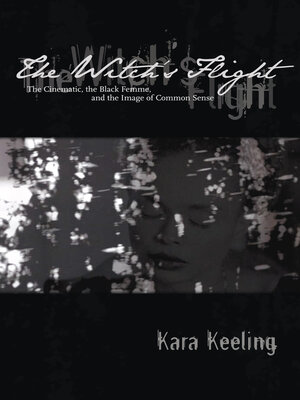The Witch's Flight
ebook ∣ The Cinematic, the Black Femme, and the Image of Common Sense · Perverse modernities
By Kara Keeling

Sign up to save your library
With an OverDrive account, you can save your favorite libraries for at-a-glance information about availability. Find out more about OverDrive accounts.
Find this title in Libby, the library reading app by OverDrive.



Search for a digital library with this title
Title found at these libraries:
| Library Name | Distance |
|---|---|
| Loading... |
Kara Keeling contends that cinema and cinematic processes had a profound significance for twentieth-century anticapitalist Black Liberation movements based in the United States. Drawing on Gilles Deleuze's notion of "the cinematic"—not just as a phenomenon confined to moving-image media such as film and television but as a set of processes involved in the production and reproduction of social reality itself —Keeling describes how the cinematic structures racism, homophobia, and misogyny, and, in the process, denies viewers access to certain images and ways of knowing. She theorizes the black femme as a figure who, even when not explicitly represented within hegemonic cinematic formulations of raced and gendered subjectivities, nonetheless haunts those representations, threatening to disrupt them by making alternative social arrangements visible.
Keeling draws on the thought of Frantz Fanon, Angela Davis, Karl Marx, Antonio Gramsci, and others in addition to Deleuze. She pursues the elusive figure of the black femme through Haile Gerima's film Sankofa, images of women in the Black Panther Party, Pam Grier's roles in the blaxploitation films of the early 1970s, F. Gary Gray's film Set It Off, and Kasi Lemmons's Eve's Bayou.







